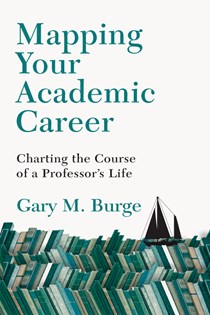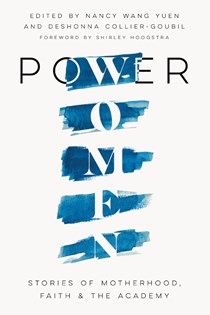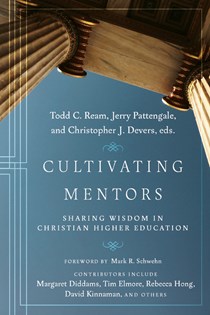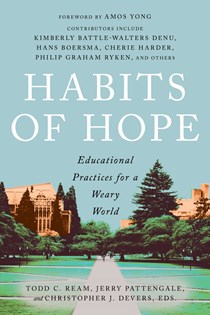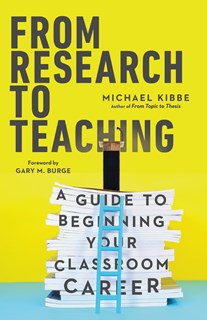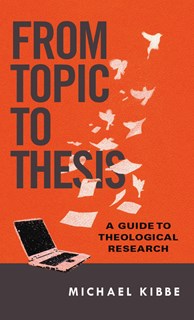Navigating Evangelical Academia as an Ethnic Minority Scholar
By Sherelle Ducksworth
IVP Academic had the privilege of sponsoring the Evangelical Theological Society lunch for ethnic-minority scholars at its annual meeting in San Antonio in November 2023. The scholars Sherelle Ducksworth and Dominick S. Hernández gave inspiring words to attendees, casting a vision of scholarship beholden first and foremost to the values of Jesus and his kingdom and not to academic elitism or individualism. We are honored to be able to share the remarks of both Ducksworth and Hernández from that event (read Hernández's presentation here). May you be encouraged by their hopeful vision of the academic life formed in Christ.
I am a doctoral student and theology professor, whose path is one of joy, frustration, discouragement, encouragement, and perseverance. To state more specifically, I am a Black female doctoral student and theology professor who participates in the world of evangelical Christianity. No doubt some will see the inclusion of my ethnicity and gender as a signpost for identity politics, but honestly, I think it is imperative to be honest, and those two categories impact my lived experience—whether that is hard to believe or not.
There are two reasons why I participate in evangelicalism. First, I identify with and hold theological evangelical views concerning the essential truths of the Christian faith. I am not evangelical in terms of politics or in terms of the evangelicalism that is the synthesis between Christianity and American culture. Second, I have found myself, by God's providence, studying and working in evangelical spaces. With that being said, it has been quite challenging navigating the evangelical world as a Black female junior scholar, academic, and professional.
It is not my desire for you to see your experience as a one-to-one comparison alongside mine because there may be a world of difference and there may be a world of similarity. Even among ethnic minorities, there are different historical narratives associated with each our God-given ethnicities in relation to majority culture that makes each of our experiences and perspectives different and unique. Likewise, our different experiences with access to social capital make some of us more optimistic about our evangelical location, while leaving the rest a little more pessimistic about existing, staying, and thriving in the evangelical world. Our access to social capital, socioeconomic status, denominational affiliation, ethnicity, culture, and geographic location make our experiences unique, and I do not want to assume what it has been like for you. I do not want to assume the worst or the best.
My Experience in Evangelical Academia
I would like to highlight some particularities of my experience that I hope can be universally helpful, encouraging, and edifying. My experience has been a transition through four phases.
Phase 1: Imposter Syndrome
I have often felt like I did not belong—sometimes because of my own insecurities and sometimes because of how others made me feel in the classroom. The combination of my own insecurities about my intellectual ability and the experience of being in the classroom, where you are asked about James Cone and not John Webster, or frankly left out of discourse except for conversations on race, has left me feeling like an imposter.
Phase 2: Intellectual Assimilation
In response to my struggle with imposter syndrome, I have tried to assimilate academically. In other words, I have tried to ensure that my peers know that I can quote Herman Bavinck, John Calvin, the Patristics, and Lewis Ayres as quickly as I can converse about James Cone, Elizabeth Johnson, Delores Williams, or Leonardo Boff. I have tried to learn all of the popular thinkers to appeal to the majority audience. Quite frankly, I have felt the need to push aside minority scholars to be more academically and scholarly "mainstream."
Phase 3: Deciding Between Ethnic-Specific and General Academics
As I worked to become competent in the theologies of Bavinck, Webster, and the Patristics, I found myself struggling. I felt this desire to learn about ethnic minority scholars, but I wanted to be taken seriously. I wanted to get published, get my papers accepted to conferences, and be hired as a professor, and in my mind that required sacrificing the concerns of Black folk and focusing on the concerns of White evangelicals. So I spent more time reading about sexuality than systemic racism. Additionally, I noticed that if I focused even a little attention on race and ethnicity, I would be viewed as the race theologian. This is evident in my professional ministry, as most people who ask me to write or speak in a scholarly setting are focusing on race—despite that fact that I am studying theology, with an emphasis on trinitarian theology. That became a source of frustration, and I did not want to be put into the box as a race theologian, even though I cared about things relevant to ethnic minorities. Why could I not do both?
Phase 4: Liberation in Imagining God
Finally, I was liberated. As I watched a documentary on the life of Toni Morrison, I was amazed at her resolve to decenter the White gaze in her life. The White gaze refers to the way minorities place White acceptance and approval at the center of their work. They end up carrying out their professional work in a way that would eventually gain them approval from their White counterparts. Morrison rejected that idea and wrote novels that she felt spoke to her audience. Hearing Morrison's perspective made me realize that I have been living as a Christian and a scholar to get approval from White people. I was aspiring for their approval thinking that if they supported and approved of my work, I had finally made it. But as a Christian, the only gaze I should have is a Christ gaze. My work must be approved by Christ. He is my only gaze. See, when you grow up in the Mississippi Delta, you can subconsciously grow up thinking that White Americans define normativity and goodness. Consequently, you seek their validation. But no more! I seek approval from God and God alone.
My Advice for BIPOC Scholars
Here is my advice to ethnic minority scholars:
1. Trust your intellectual abilities and do the work so that you don't feel like you don't belong here. Remember that everyone has a measure of grace given to them in their intellectual stewardship and it is not your job to be D. A. Carson or Fred Sanders, John Piper or Francis Chan, or Martin Luther King Jr. But you have a stewardship entrusted to you in your mind and intellect. Steward it well.
2. Read broadly and expand your mind and conversation partners. Expose yourself to new thinkers, for this makes you a great scholar. Great scholarship is not merely regurgitating Luther's thoughts, but it's being able to think critically. Critical thinking grows as you engage readings from those who challenge your thinking. Read and read broadly—even if that means reading James Cone or Michelle Gonzalez.
3. Do study race and theology, or only study race or only study theology. Be sure to go down the disciplinary roads that God is leading you to follow even if no one is interested in that work. Even if others don't take that work seriously. Additionally, do not lose your connection to your culture. Staying tethered there will keep your faith active, engaging, communal, and life giving. Never exalt your ethnicity over your identity as a Christian, but you should not see the two as intrinsically opposed to one another.
4. Let go of the White gaze whereby you critique your work in light of what majority culture will think about it. Let go of the White gaze and don't decide on your projects based on what majority culture wants. Instead, use a Christ gaze and see your work as a way to point people to him and be drawn not to majority culture but to Christ. This does not mean you should reject peer reviews or constructive feedback, but it does mean don't make decisions based on what will put you in the "White evangelical in-group." Likewise, don't make scholarly decisions and choices based on appeasing an "anti-White evangelical in-group." Make your decisions with wisdom, clarity, and guidance from the Lord. Let him be your gaze.
About the Author
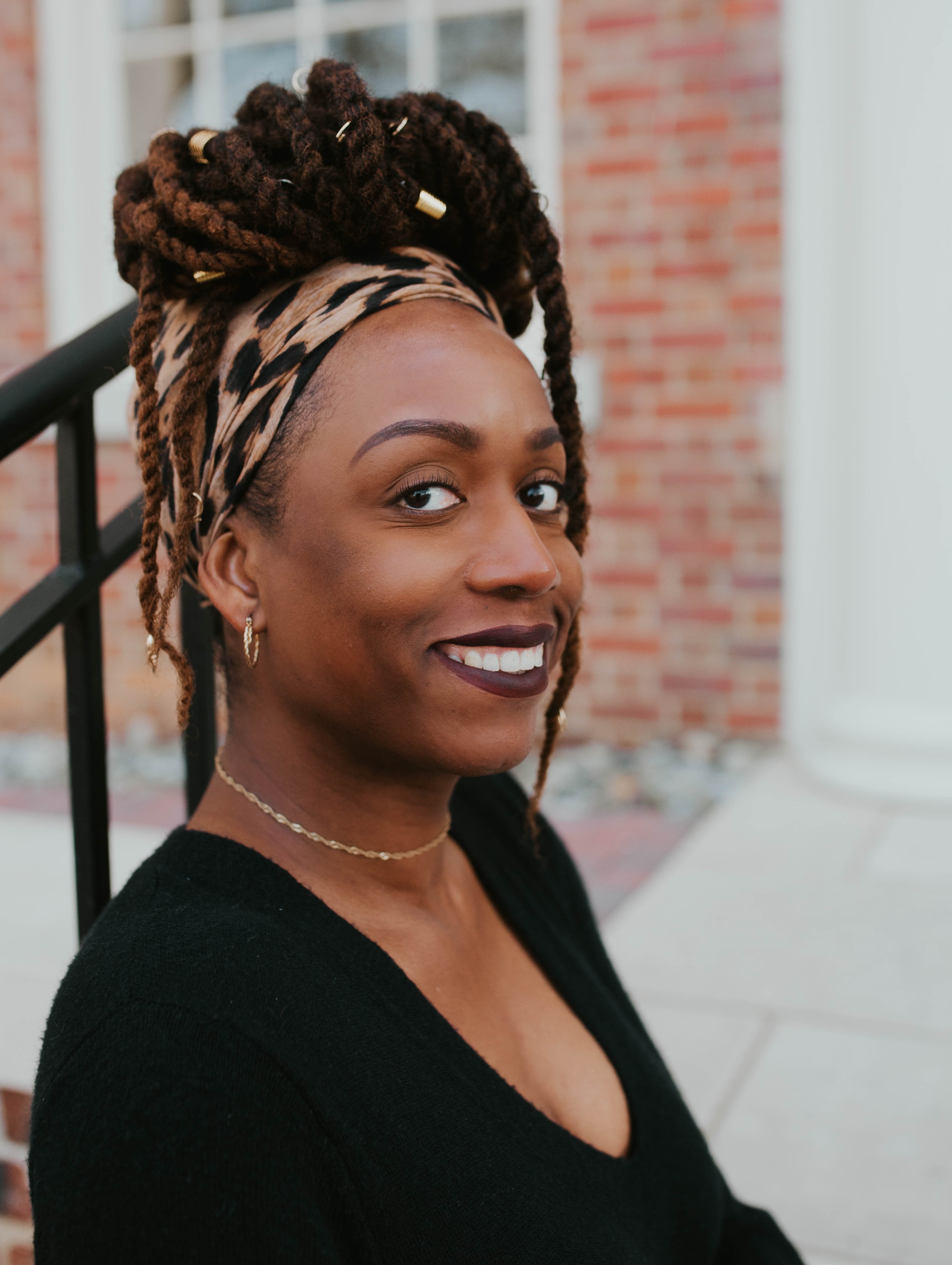
Sherelle Ducksworth is a lecturer of Christian Studies at Clamp Divinity School, Anderson University. She holds a BS in sociology (Mississippi Valley State University), an MS in sociology (Mississippi State University), and an MA in theology (Mid-America Theological Baptist Seminary), and is currently a PhD candidate in systematic theology at Southeastern Baptist Theological Seminary. She previously served as a sociology instructor and faculty advisor for the Black Student Union at Louisburg College in Louisburg, North Carolina. Her research interests include trinitarian theology, theological anthropology, and Christology.
This article originally appeared in IVP Academic's Excursus newsletter. Sign up for IVP's email list and select "academic books" to get more content like this straight to your inbox.
Discover more on Christian higher education and evangelical academia by exploring the resources below.
This piece is adapted from an address given at the Evangelical Theological Society's Ethnic Minority Networking Lunch, November 16, 2023, in San Antonio, Texas.





